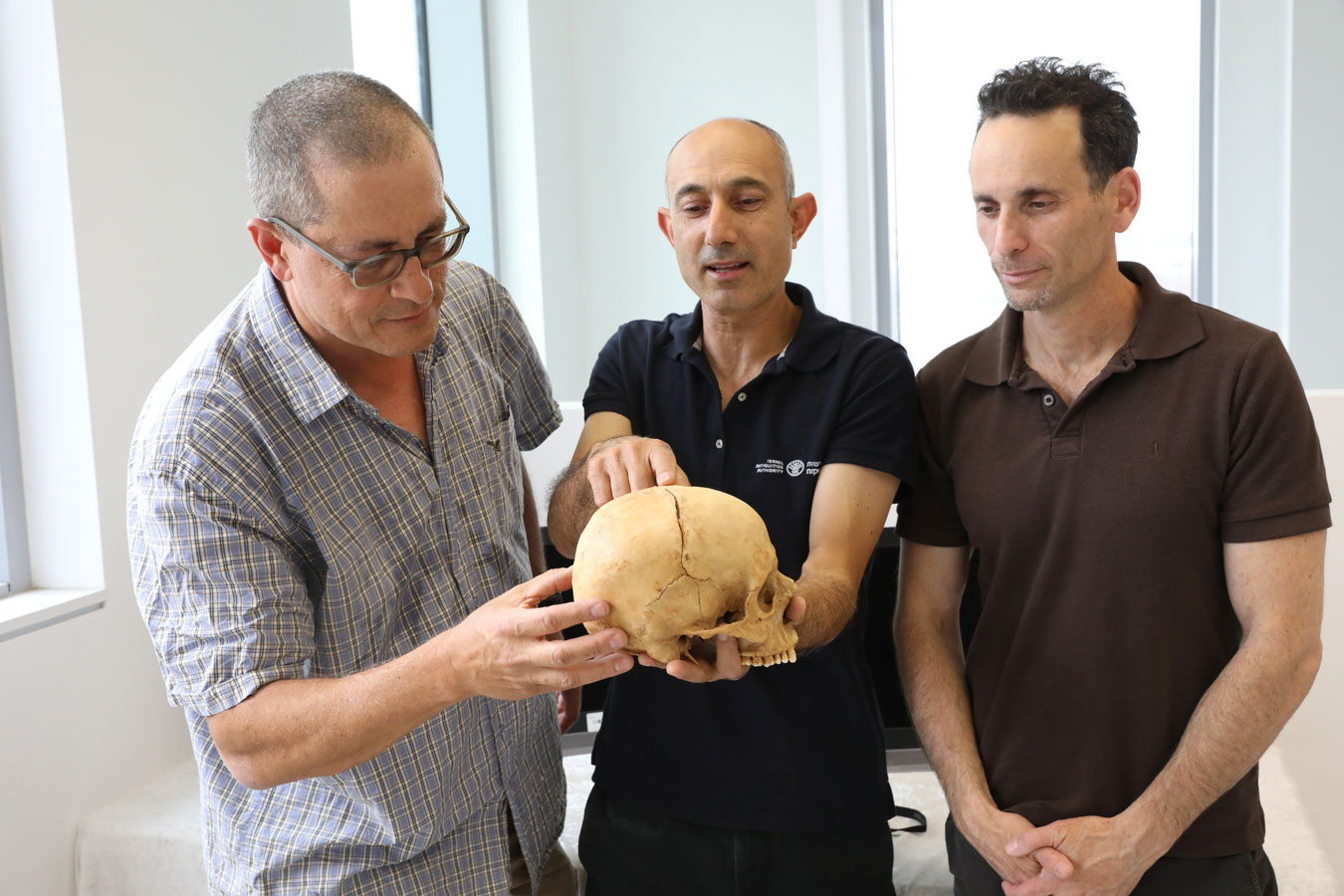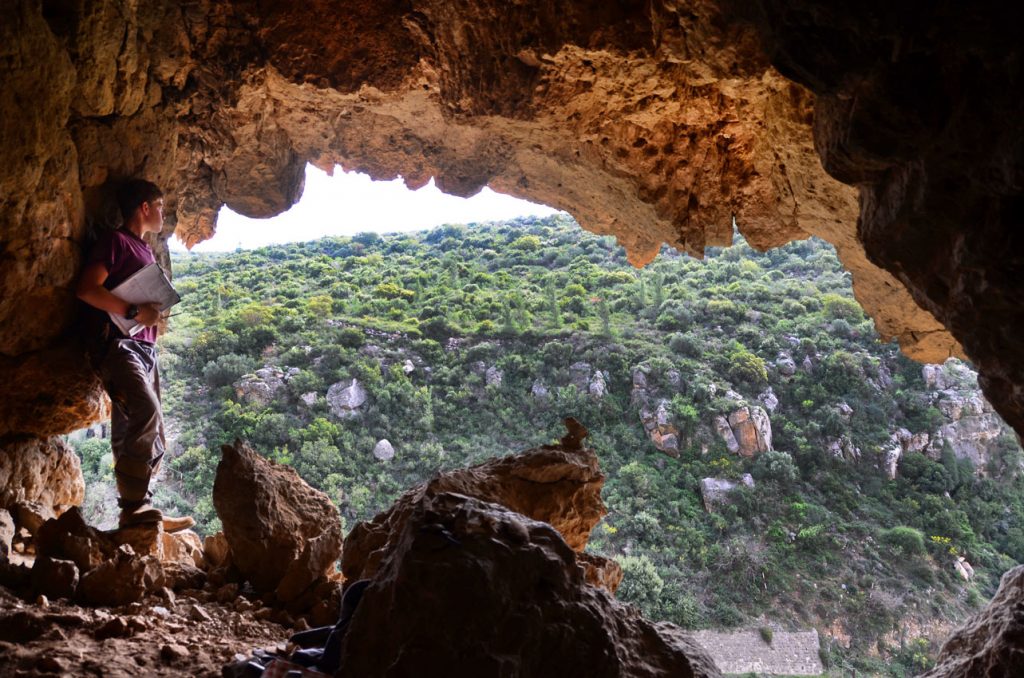
A sliced skull and amputated right hand dating from the tenth century are the oldest evidence yet discovered in Israel to the Bedouin custom of blood vengeance
A human skull and the bones of a hand, recently discovered in a cave in the Jerusalem foothills, are thought to be the earliest evidence yet found in Israel of Bedouin blood feud customs. Professor Boaz Zisu of Bar Ilan University unearthed the skull, fractured in two by a blow from a sharp implement. Intrigued, he sent it for analysis by his colleagues, anthropologist Dr. Yossi Nagar at the Israel Antiquities Department and Dr Haim Cohen of Tel Aviv University’s Legal Medical faculty. They concluded that the skull dated from the tenth century and that the victim was a young man.
The fact that the bones of a hand were found beside the skull recalled an early twentieth century description of Bedouin blood vengeance customs, in which a family member charged to avenge his relative’s death would bring the skull and severed right hand of his victim back as proof that he’d completed his mission. No other human remains were found in the cave.
As the only inhabitants of the area in the tenth century were Bedouin tribes, the researchers see the bizarre artifact as evidence that the Bedouin code of vengeance was already practiced here as early as the tenth century. The fact that said skull had already suffered, and recovered from, two other sword blows suggests that it’s owner certainly lived a violent and dangerous life.

